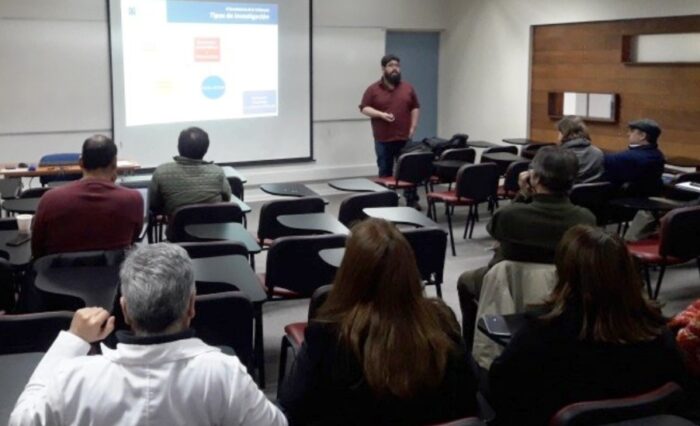How to collect and use evidence for correct use in public health policies?
21/08/2018
“How to collect and use evidence for correct use in public health policies?” was the title of the led by surgeon and researcher Javier Pérez Bracchiglione to the lecturers belonging to the various staff units of Ciesal.
During his lecture, the academic – who is also a member of the Chile Cochrane Network – referred to the processes through which professionals and specialists from a wide range of disciplines can search, gather, synthesize, assess and share relevant information beyond the mechanisms that have traditionally been relied on in Chile and throughout much of the world.
“Not all of us are – or want to be – generators of evidence. Some of us prefer to collect it, others to review it, summarise it or compile it, to obtain a result with the least possible bias. The important thing here is to understand how to carry out these processes correctly”, stated Pérez Bracchiglione.
Continuing his argument, Javier Pérez specified that, for health systems to function optimally, there must be a continuous flow of information between the different stakeholders that comprise and interact with those systems. This allows establishing an evidence ecosystem that promotes decision-making, the implementation of better clinical processes, the strengthening of care management, the design of greatly improved practice guidelines and, of course, the development of research or primary studies in this field.
In addition, the CIESAL researcher described the issues to be considered when gathering evidence – “As a process, this involves posing an answerable clinical question, carrying out an orderly search, proceeding with critical analysis and with the clear aim of always applying the results taking into account the patients or the population, the intervention or action to be taken, the relevant comparison and the objective or outcome.”
Dr Pérez Bracchiglione’s lecture took place in Universidad de Valparaíso’s Health Department on the Reñaca Campus and was organised by the Research Committee of the Faculty of Medicine, led by Professor Nicolás Fuster.



